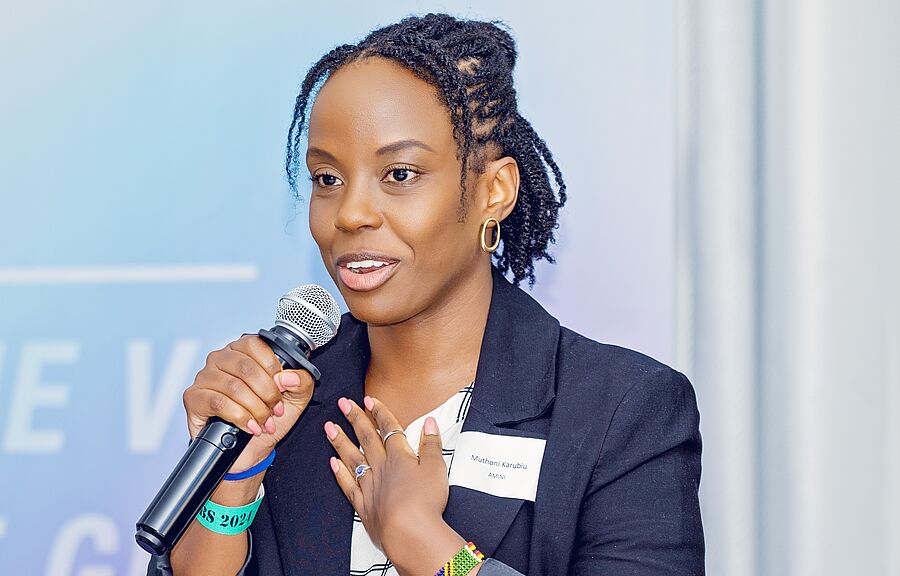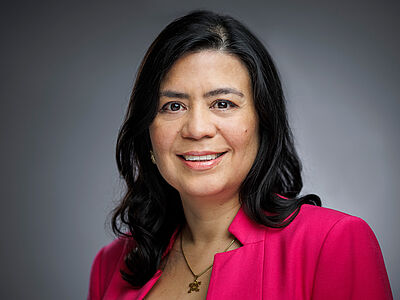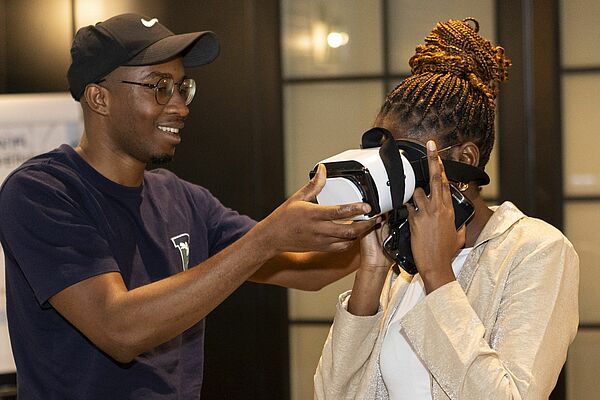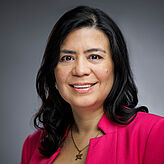Artificial intelligence as a game-changer: the women are coming!

They’re there if you look for them. Not yet visible everywhere, and not always represented on the world’s major stages. But certainly more visible than before. Women like Muthoni Karubiu, Chief Operating Officer at Amini Kenya, whose mission is to use artificial intelligence (AI) to find new solutions to combat climate change and improve food security on the African continent. Or Judy Ngure, one of the most prominent cybersecurity experts in the Global South. Just recently, these two women shared their visionary ideas with a large community of international women entrepreneurs at the 2024 German-African Business Summit (GABS). AI, this ground-breaking transformative technology, is not a male preserve. More and more women are utilising its potential to help shape the digital world of tomorrow.
The gender divide
It is no coincidence that those making a splash with their innovative approaches are often pioneers with roots in supposedly less developed countries. In Ghana, Nigeria, Rwanda and Uganda, for example, the proportion of women in innovative industries has been stable at around 40 per cent for many years(1). The start-up culture is spreading faster on the African continent than just about anywhere else(2). There are already around two and a half thousand organisations there specialising in AI. Despite this trend, a quick glance at other figures highlights just how much women like Karubiu and Ngure remain exceptions to the rule – both in Africa and elsewhere. Not only is there a digital divide between high-income countries and those with a low per capita income, where access to the internet is often patchy or non-existent, but also a gender divide. Over 40 per cent of men – but only 30 per cent of women(3) – regularly use the internet in Africa. Worldwide, only a quarter of employees in the digital sector are female.
Enabling meaningful connectivity
Is this a reason to lose heart? Not at all. If anything, it’s an incentive. As role models, Judy Ngure and Muthoni Karubiu have the power to encourage millions of girls and women around the world. Thanks to initiatives such as the online training course Women Going Digital or the Smart Africa Digital Academy, GIZ is helping to improve career opportunities for even more of them. This is already an economic necessity: countries with low and medium per capita incomes are losing out on a trillion US dollars annually because of the inadequate participation of women and girls in digital technology. Providing women with more meaningful connectivity and equipping them with the necessary skills and resources serves not only to drive the economy, it also creates a dynamic from which all societies benefit.
Overcoming racial and gender stereotypes
Only those with a hand in shaping the future can tackle one of the most serious drawbacks of AI to date: the reproduction of gender stereotypes based on training data created by a male-dominated world. As revealed by a study published by the Berkeley Haas Center for Equity, Gender and Leadership, almost half of all AI systems worldwide currently reflect such stereotypes. This is not merely a minor defect but a real and present danger – because women must play an active role if economic development is to take place. Joy Buolamwini, a Canadian-American researcher, consultant and activist, is therefore another role model for women all over the world. Educated at Oxford and the Massachusetts Institute of Technology (MIT), for years she has been campaigning to develop AI solutions without a racial or gender bias. If more women like Muthoni Karubiu, Judy Ngure and Joy Buolamwini recognise the opportunities offered by technology and use these to benefit as many people as possible, then AI could become a game-changer on a scale almost unimaginable today.
Published on



